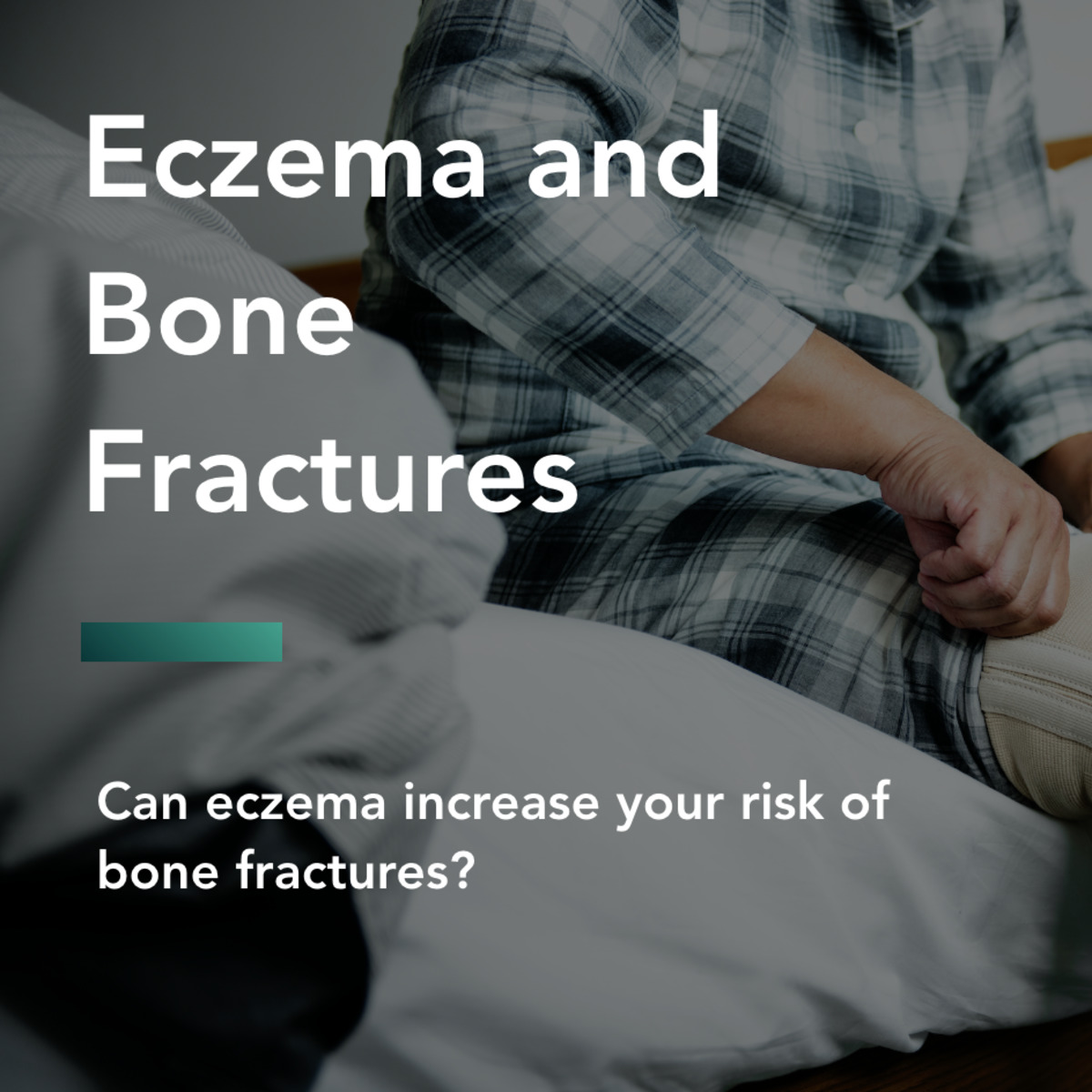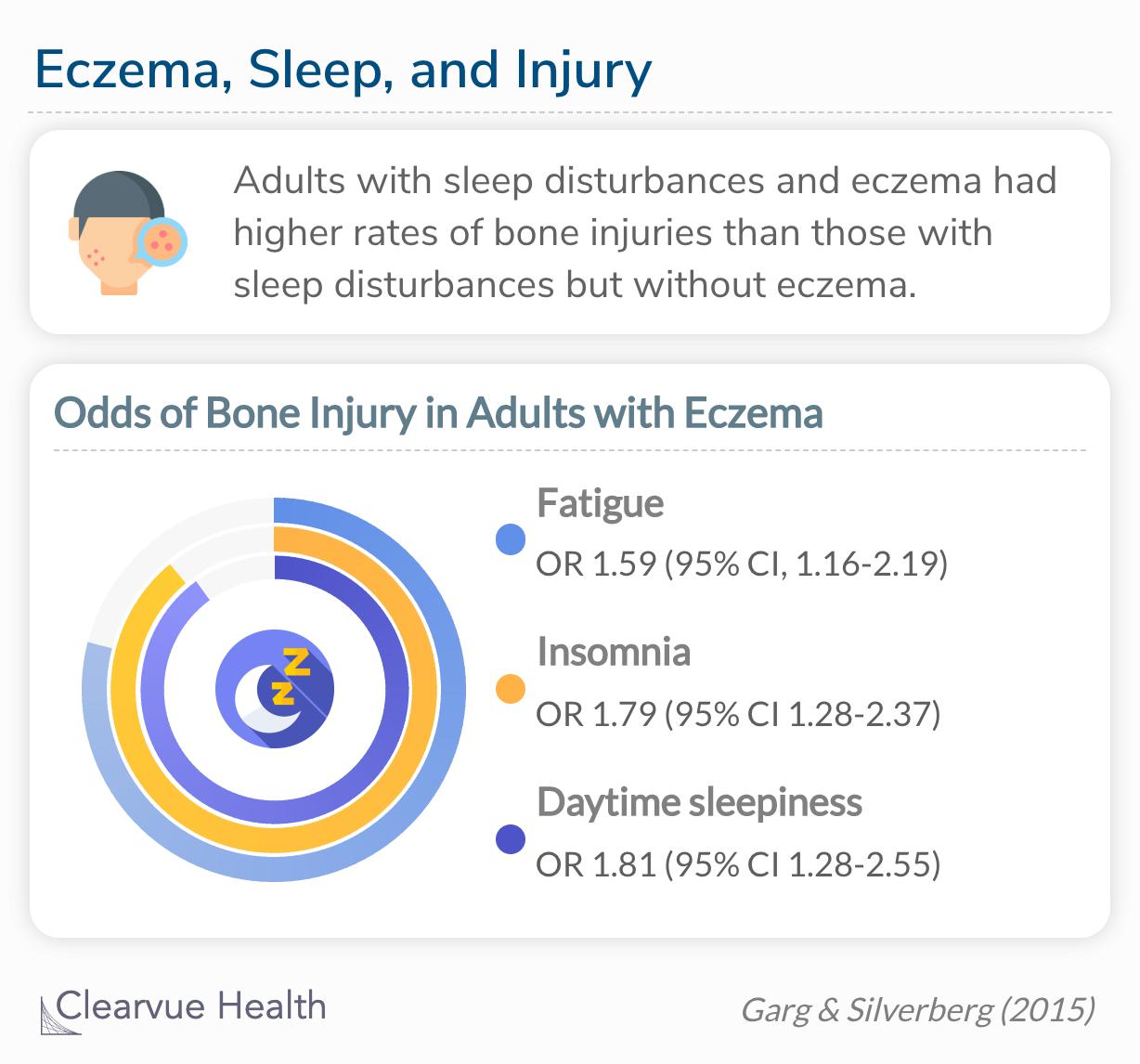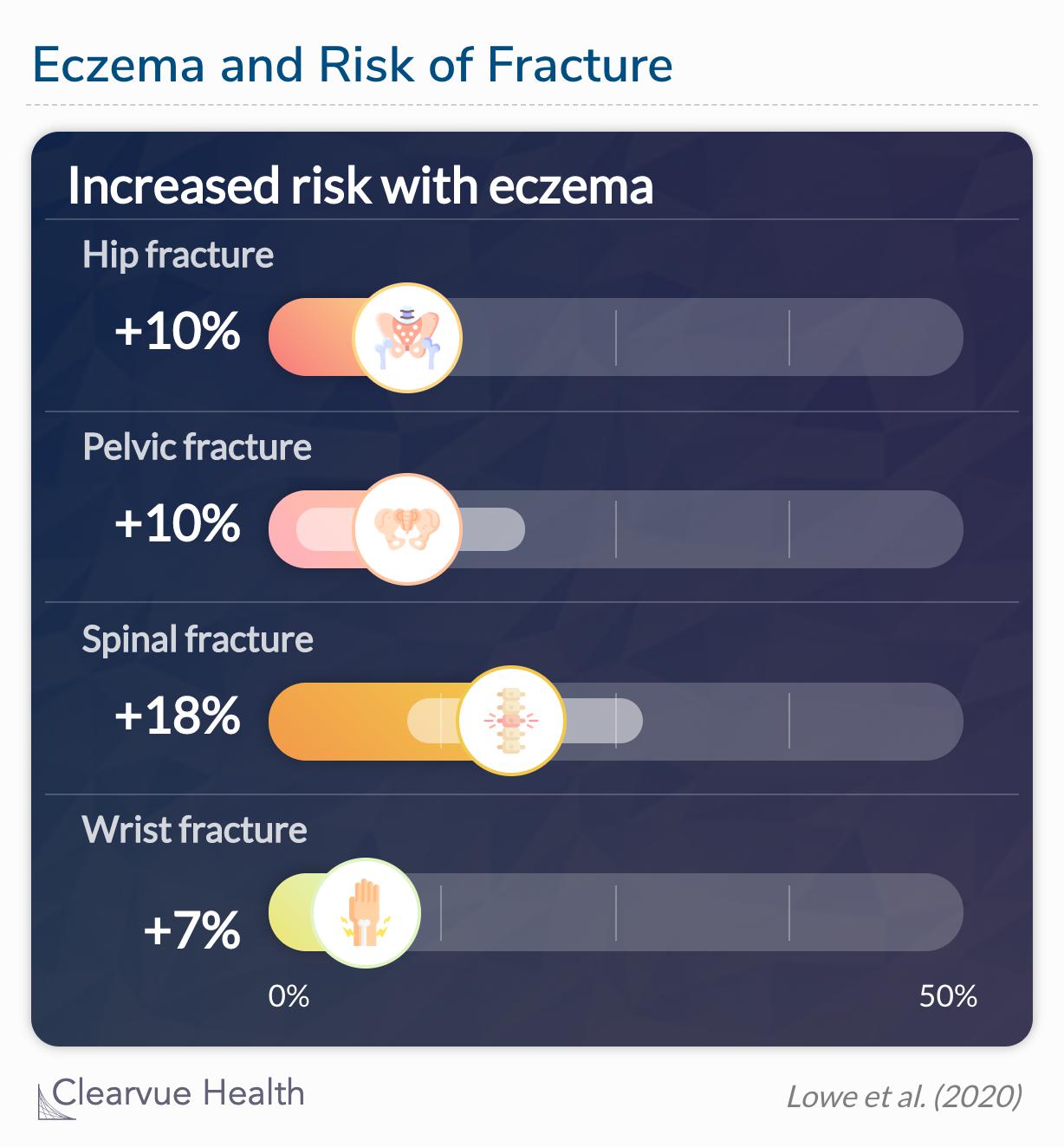Eczema and bone fractures: Can eczema increase your risk of bone fractures?
Eczema is a disease that causes an irritating rash to form on the skin. There are different levels of severity with eczema. Some individuals have a mild case in a centralized location that may only require a prescription to manage. Those with severe eczema have rashes on large portions of their bodies that often resist treatment and dramatically impact mobility. In this way, eczema changes not only a person's skin but their entire life. As researchers explore the lifestyle changes generated by eczema, they found that this skin disease can increase the risk of other physical conditions.
Eczema and risk of injury
In a study of eczema patients, researchers wanted to know if their risk of injury varied from the general population. They used data from a national health survey in the United States with questions about eczema status and injury reports.
Source: Association Between Eczema and Increased Fracture and Bone or Joint Injury in Adults A US Population-Based Study
Based on the dataset, the researchers identified a significant difference in injury instances between those with and without eczema. People with eczema were more likely to report an injury, specifically fracture and bone or joint injury. The association remained strong after considering other risk factors such as socioeconomic study, asthma, and behavioral disorders. In addition, they found that sleep played an important role in the relationship.
Significant interactions were observed between eczema and fatigue or sleep symptoms, such that adults with eczema and fatigue (aOR, 1.59; 95% CI, 1.16-2.19), daytime sleepiness (aOR, 1.81; 95% CI, 1.28-2.55), or insomnia (aOR, 1.74; 95% CI, 1.28-2.37) had higher rates of FBJI compared with those with sleep symptoms and no eczema.
Without enough sleep, our reasoning and motor skills diminish. This does not make our bones weaker, but it definitely plays a role in our decision making and physical capabilities that keep us from getting injured. The researchers isolated the group of participants who reported sleep disturbances. Within this group, those with eczema had a higher risk of injury compared to those without.
It is reasonable to conclude that eczema, particularly severe eczema, worsens sleep quality. It is difficult to fall asleep with itchiness or pain. People with eczema may simply be more likely to suffer from severe sleep distress than the average person. However, this research suggests that sleep disturbances have a greater impact on the odds of injury in those with eczema.
Types of fractures
Another study looked at the risk of specific types of fractures in relation to eczema. They focused on osteoporotic fractures such as hip, pelvis, spine, wrist, and proximal humerus fractures. Their sample included over 3 million people.
Those with eczema had increased risk of hip (HR, 1.10; 99% CI, 1.06-1.14), pelvic (HR, 1.10; 99% CI, 1.02-1.19), spinal (HR, 1.18; 99% CI, 1.10-1.27), and wrist (HR, 1.07; 99% CI, 1.03,-1.11) fractures.
Source: Atopic eczema and fracture risk in adults: A population-based cohort study
In alignment with the study above, those with eczema had an increased risk of hip, pelvic, spinal, and wrist fractures compared to those without eczema. As the severity of eczema increased, so did that risk. For example, people with eczema had a 10% increased risk of hip fracture, but that risk increased to 50% among those with severe cases of eczema.
Final thoughts
Eczema is a disease that impacts more than a person's skin. Those with eczema can suffer from sleep problems, bullying, limited mobility, and low self-esteem. Eczema, along with these co-morbidities, leads to an increased risk of injury. Particularly, those with mild to severe eczema have an increased risk of bone or joint fractures. The path of this relationship is unclear, but these studies provide good evidence that the relationship exists.





































